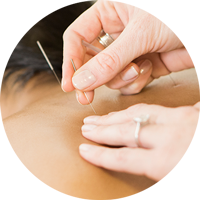In the United States, as many as 18 percent of couples, or individuals, who want to get pregnant will have trouble either getting pregnant or avoiding miscarriage. If you are trying to conceive without success, then you know first-hand the stress and trials that come with month after month of failure to realize your dreams of becoming a family. If the challenge lies with the woman, not the man, treatment for female infertility from Aligned Modern Health can help. Here is more information about this common problem, its causes and its treatments.
What Is Female Infertility?
When the cause of a couple’s infertility is found to be with the female partner, it is labeled female infertility. The female partner’s infertility problems are a factor in about 50 percent of all infertility cases, and about one-third of all cases are due to the woman’s fertility problems alone. If you are struggling to get pregnant, you need to take a closer look at these factors. Here is some female infertility info to help in your search for answers.
Signs and Symptoms of Infertility in Women
While it may seem that the signs and symptoms of infertility in women are obvious, because infertility means you cannot get pregnant, pinpointing additional signs can help women know if they are the cause, or if they should be focusing on the health and fertility of their partners.
In addition to the inability to get pregnant, another symptom of infertility that women may experience is problems with their menstrual cycle. If your menstrual cycle is too long, spanning more than 35 days; or too short, recurring in less than 21 days, it can mean you are not ovulating properly. In addition, a completely irregular cycle or absent cycle means a woman does not ovulate, and as a result cannot get pregnant. Otherwise, this particular condition causes few symptoms. Most women start searching for female infertility info after they cannot successfully conceive.
What Causes Female Infertility?
One of the most common female infertility causes is improper or lack of ovulation. In order to get pregnant, a woman’s body must reproduce and release an egg. Women who don’t ovulate or who have other problems with their ovaries cannot become pregnant. Common ovulation disorders include:
- Polycystic ovary syndrome (PCOS)
- Hypothalamic dysfunction
- Premature ovarian failure
- Excessive prolactin levels
Problems with the fallopian tubes can also be the cause of female infertility. If the tubes are blocked and sperm cannot get to the egg, or if the fertilized egg cannot travel to the uterus, pregnancy cannot occur. Abdominal surgery, pelvic inflammatory disease or pelvic tuberculosis can all cause this.
Endometriosis, which is tissue growing outside of the uterus, can lead to scarring that blocks the fallopian tubes. It can also affect the lining of the uterus and disrupt the implantation process or make miscarriage more likely. Uterine or cervical diseases — including abnormalities, poor mucus production, polyps or tumors — can also contribute to infertility. Some women can also experience unexplained infertility, in which no underlying cause is found.
Risk Factors for Female Infertility
In addition to these underlying causes, certain risk factors can make it more difficult for women to become pregnant, either because they disrupt ovulation or they contribute to some of the other causes. These risk factors include:
- Age: Fertility rates begin to decline in a woman’s mid-30s, so the older a woman is, the more likely it will be that she will have fertility concerns.
- History of smoking: Smoking increases the risk of miscarriage and ectopic pregnancy, can damage the reproductive organs, and may age the ovaries prematurely.
- History of alcohol use: Alcohol abuse can decrease ovulation, so women wanting to become pregnant should drink no more than one alcoholic drink a day.
- Weight: Being either obese or severely underweight can make it difficult to conceive.
- Sexual history: Sexually transmitted diseases can cause damage to the fallopian tubes and increase the chances of becoming infertile.
If you have risk factors that may make pregnancy difficult or increase your chances of miscarriage, it’s important to work with a doctor as you try to become pregnant to increase your chances of success.
Diagnosing Female Fertility Problems
Diagnostic tests to pinpoint the causes of infertility in women may include:
- Ovulation testing: Women can use ovulation prediction kits to determine if they are ovulating.
- Ovarian reserve testing: This test involves blood and imaging tests to determine the quality and quantity of a woman’s eggs.
- Hormone testing: Hormones play a huge role in female fertility, and hormone tests can pinpoint underlying causes such as PCOS that may be preventing ovulation.
- Imaging testing: Imaging tests of the reproductive system, such as a hysterosalpingography, ultrasound or hysterosonography, can locate abnormalities of the uterus, ovaries and fallopian tubes that may contribute to infertility.
- Genetic testing: Some causes of infertility are genetic, so genetic testing can rule these out.
- Laparoscopy: This minimally invasive surgery allows a doctor to view the reproductive system to identify underlying infertility causes, such as scarring or blockages.
How to Help Prevent Infertility Problems in Women
While some causes of infertility cannot be prevented, others can. For couples who wish to get pregnant, here is some practical female infertility info to consider:
- Avoid STDs: Using proper protection to prevent the contraction of a sexually transmitted disease can help prevent many causes of infertility. STD testing and proper protection during intercourse are both critical.
- Minimize alcohol consumption: During those times when a woman wishes to become pregnant, limiting herself to no more than one alcoholic drink a day will help.
- Quitting smoking: Women who think they may wish to become pregnant at some point should avoid smoking or quit smoking if they are currently a smoker.
- Good personal hygiene: Good personal hygiene can help prevent infections that could contribute to fertility problems.
- Avoid drug use: Like smoking and alcohol, illicit drugs can impact fertility and should be avoided.
- Regular gynecological checkups: Staying on top of reproductive health requires annual gynecological checkups. Women need to be consistent with these checkups to ensure they are doing all they can to protect their health.
- Maintain a healthy weight: Being overweight or underweight can contribute to hormonal imbalances that lead to fertility problems, so women should work to maintain a healthy weight.
Holistic Female Infertility Treatments From Aligned Modern Health
If you are struggling with miscarriage or fertility problems, treatment may be available. At Aligned Modern Health, we offer a number of treatments that may help increase your chances of becoming pregnant.
For many women, acupuncture is a first line of defense against many common female infertility causes. Acupuncture can help regulate hormones and improve the body’s overall function to aid in conception. Additionally, acupuncture can regulate the menstrual cycle, increase blood flow to ovaries and uterus, and improve ovarian function and uterine wall lining. It also helps reduce stress, and stress can prevent ovulation in many women.
Acupuncture can be used in conjunction with Assisted Reproductive Technology (ART) and may be used to help relieve side effects from intrauterine insemination (IU) such as in-vitro fertilization (IVF).
Clinical Nutrition and Functional Medicine can also assist women in becoming pregnant. Based on an evidenced-based approach, Functional Medicine gets to the root cause of your health concerns by identifying foundational barriers to conception and imbalances that can affect fertility.
Our Functional Medicine providers will work with you from the moment you decide you want to become a parent. Pre-conception treatment may include eliminating toxins, addressing hormonal imbalances, regulating adrenal stress, addressing nutrient deficiencies, and helping you reach an optimal BMI.
Offering a full range of diagnostic testing, Functional Medicine can help you get beyond the barriers to conception. With a whole body approach to your health, Functional Medicine will allow you helping you to restore function where it may be lost while also fueling your body with the nutrients it needs to achieve a healthy pregnancy.
Finally, we have an expert team of licensed massage therapists, specializing in therapeutic massage. Each talented massage therapist is ready to assist you by providing a skilled, rejuvenating, therapeutic massage that can reduce stress, ease musculoskeletal pain, and more.
If you are having trouble conceiving, Aligned Modern Health may be able to help. In addition to talking to your OB-GYN, schedule an appointment with our team for an evaluation. With our holistic female infertility treatments, you can restore balance to your body and increase your chances of conceiving and enjoying a healthy pregnancy.
Schedule
Please fill out the form to request an appointment at our health and wellness center for the service and location of your preference. We try to get back to all requests as quickly as possible. If you need immediate assistance, please call 773-598-4387.
Your safety comes first: we are operating with heightened safety measures in our clinics and offer telemedicine for those unable to visit in person.






